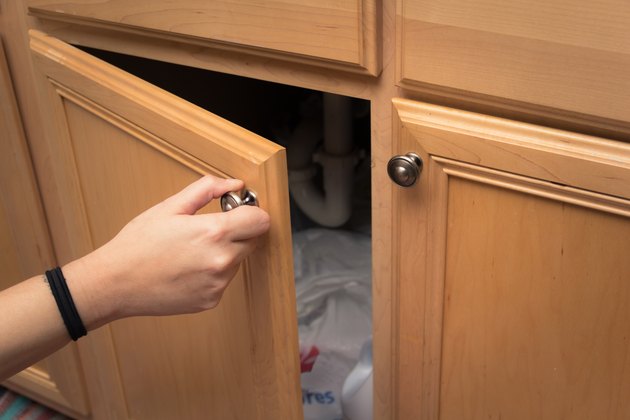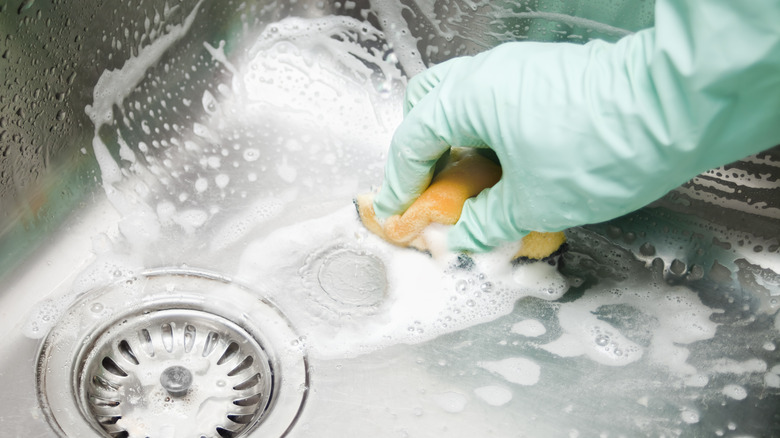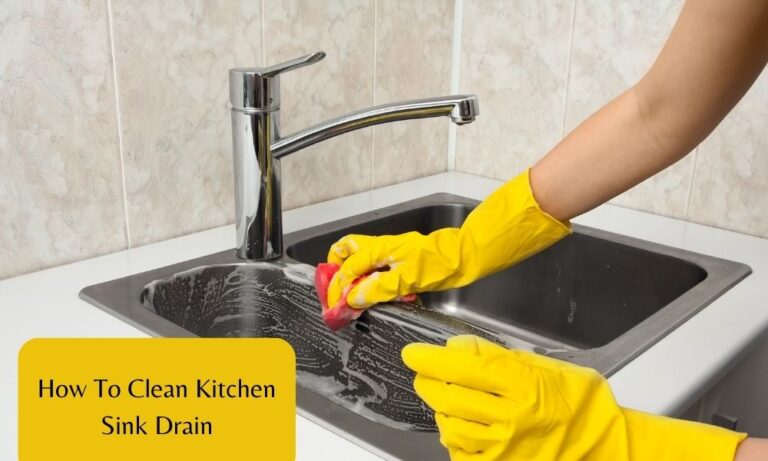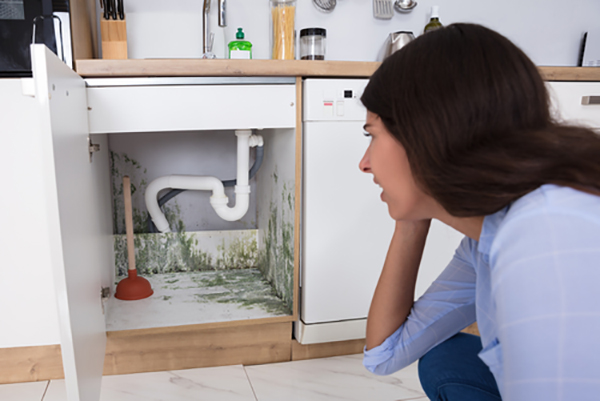If you've noticed a musty, unpleasant odor emanating from your kitchen sink drain, you're not alone. This common issue is often caused by mildew, a type of fungus that thrives in warm, damp environments. But what exactly is causing the mildew smell in your kitchen sink drain? Let's take a closer look. The most common cause of mildew smell in kitchen sink drain is the accumulation of food particles and grease in the pipes. When these materials are left to sit, they create the perfect breeding ground for mildew. Other possible causes include clogs, leaks, and improper ventilation.1. Causes of Mildew Smell in Kitchen Sink Drain
Fortunately, getting rid of mildew smell in kitchen sink drain is relatively easy. The first step is to thoroughly clean your sink and drain. Use a mixture of hot water and dish soap to scrub away any visible grime and buildup. Then, pour a solution of equal parts water and white vinegar down the drain. This will help kill any remaining mildew and neutralize the odor. You can also add a few drops of essential oils, such as lemon or tea tree, for a fresh scent. If the smell persists, you may need to repeat this process a few times or try a commercial drain cleaner. Just be sure to follow the instructions carefully and avoid using harsh chemicals that could damage your pipes.2. How to Get Rid of Mildew Smell in Kitchen Sink Drain
If you prefer to use natural, DIY solutions to get rid of the mildew smell in your kitchen sink drain, there are several options you can try. Baking soda and lemon juice are a powerful combination for removing odors and killing bacteria. Simply sprinkle baking soda down the drain, followed by a mixture of lemon juice and hot water. Let it sit for a few minutes before flushing with more hot water. You can also make a paste with baking soda and white vinegar and use it to scrub the inside of your drain. This will help remove any stubborn mildew and leave your sink smelling clean and fresh.3. DIY Solutions for Mildew Smell in Kitchen Sink Drain
As mentioned earlier, the most common cause of mildew smell in kitchen sink drain is a buildup of food particles and grease. These materials create a perfect breeding ground for mildew and bacteria, which can lead to unpleasant odors. Other culprits include clogs caused by hair, soap scum, and mineral buildup, as well as leaks that allow moisture to accumulate in your pipes. To prevent these issues, be sure to regularly clean your sink and drain, and avoid pouring grease and food waste down the drain. You can also use a drain strainer to catch debris and prevent it from entering your pipes.4. Common Culprits of Mildew Smell in Kitchen Sink Drain
If your DIY efforts have failed to eliminate the mildew smell in your kitchen sink drain, it may be time to call in the professionals. A plumber can use specialized tools, such as a drain snake or hydro jet, to remove stubborn clogs and thoroughly clean your pipes. They can also inspect for any leaks or other issues that may be contributing to the odor. While this may be a more expensive option, it can be worth it in the long run if the problem persists. Plus, a professional cleaning will ensure your pipes are thoroughly cleaned and will help prevent future issues.5. Professional Remedies for Mildew Smell in Kitchen Sink Drain
The best way to deal with mildew smell in kitchen sink drain is to prevent it from happening in the first place. By regularly cleaning your sink and drain, avoiding pouring grease and food waste down the drain, and using a drain strainer, you can keep your pipes free of buildup and reduce the chances of mildew growth. You can also run hot water down the drain after each use to help flush away any debris and keep your pipes clear.6. Preventing Mildew Smell in Kitchen Sink Drain
If you prefer to use natural, non-toxic methods to eliminate mildew smell in kitchen sink drain, there are a few options you can try. One is to pour a mixture of hot water and baking soda down the drain, followed by a cup of hydrogen peroxide. Let it sit for 10-15 minutes before flushing with hot water. You can also use a mixture of equal parts water and apple cider vinegar, followed by a few drops of essential oils, to kill mold and bacteria and leave your sink smelling fresh and clean.7. Natural Ways to Eliminate Mildew Smell in Kitchen Sink Drain
In most cases, mildew smell in kitchen sink drain is a minor issue that can be easily resolved. However, if the smell persists despite your efforts to clean and deodorize your drain, it may be a sign of a more serious problem. This could include a damaged or clogged pipe, a leaking or broken seal, or even a larger mold infestation. If you notice any of these issues, it's best to call a professional for a thorough inspection and repair.8. Signs of a Serious Problem with Mildew Smell in Kitchen Sink Drain
To prevent mildew smell in kitchen sink drain, it's important to regularly clean and maintain your sink and drain. This includes using a mixture of hot water and dish soap to scrub away any visible grime and buildup, as well as using natural deodorizers, such as vinegar and essential oils, to keep your drain smelling fresh. You should also be mindful of what you pour down your drain and avoid using harsh chemicals that can damage your pipes and create a toxic environment for mold and bacteria to grow.9. How to Clean and Maintain Kitchen Sink Drain to Avoid Mildew Smell
Regularly checking for mildew smell in kitchen sink drain is an important step in maintaining a clean and healthy kitchen. Not only can it be a sign of larger issues, but it can also make your kitchen an unpleasant place to be. By addressing mildew smell as soon as it arises, you can keep your sink and drain in top condition and prevent more serious problems down the line. In conclusion, mildew smell in kitchen sink drain is a common issue that can be easily addressed with regular cleaning and maintenance. By understanding the causes and taking preventative measures, you can keep your kitchen smelling fresh and clean at all times. If the problem persists, don't hesitate to call a professional for help in resolving the issue. Your nose (and your kitchen) will thank you!10. Importance of Regularly Checking for Mildew Smell in Kitchen Sink Drain
Mildew Smell Coming From Kitchen Sink Drain: Causes and Solutions

Introduction
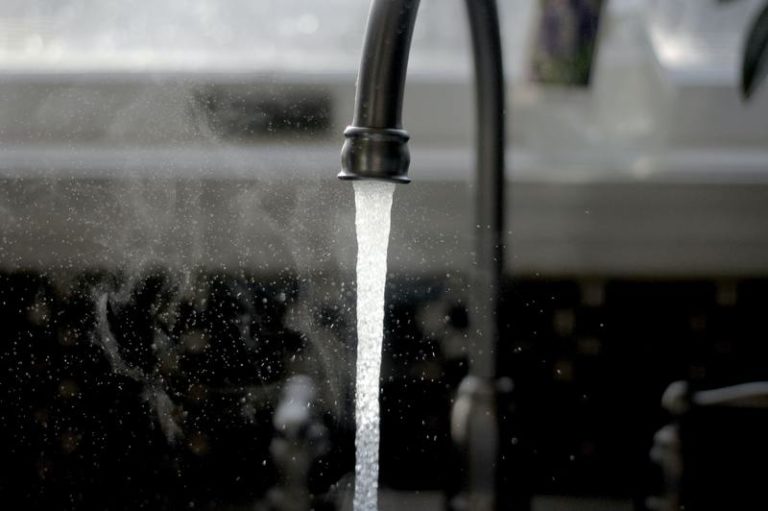 When it comes to house design, there are many things to consider - from the layout and decor to functionality and maintenance. One common issue that homeowners may face is a mildew smell coming from the kitchen sink drain. This unpleasant odor can be a nuisance and may even be a sign of a bigger problem. In this article, we will discuss the main causes of this issue and provide some solutions to get rid of the mildew smell in your kitchen.
When it comes to house design, there are many things to consider - from the layout and decor to functionality and maintenance. One common issue that homeowners may face is a mildew smell coming from the kitchen sink drain. This unpleasant odor can be a nuisance and may even be a sign of a bigger problem. In this article, we will discuss the main causes of this issue and provide some solutions to get rid of the mildew smell in your kitchen.
The Main Causes of Mildew Smell in Kitchen Sink Drain
 There are several reasons why your kitchen sink drain may emit a mildew smell. The most common cause is the buildup of food particles and grease in the drain. When these substances combine with moisture, they can create the perfect environment for mold and mildew to grow. Another common cause is the lack of proper ventilation in the kitchen, which can trap moisture and contribute to the growth of mold and mildew.
There are several reasons why your kitchen sink drain may emit a mildew smell. The most common cause is the buildup of food particles and grease in the drain. When these substances combine with moisture, they can create the perfect environment for mold and mildew to grow. Another common cause is the lack of proper ventilation in the kitchen, which can trap moisture and contribute to the growth of mold and mildew.
Solutions for Getting Rid of the Mildew Smell
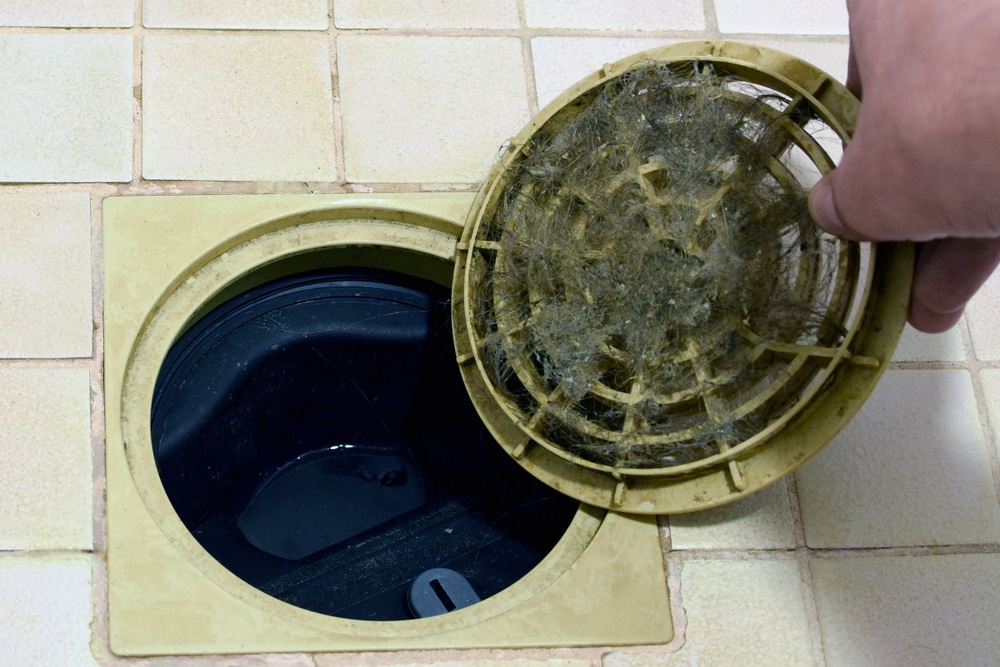 Now that we know the main causes of the mildew smell in the kitchen sink drain, let's discuss some solutions to eliminate it.
Clean the Drain Regularly
The first step in getting rid of the mildew smell is to clean your kitchen sink drain regularly. Use a mixture of hot water and dish soap to flush out any food particles and grease that may have accumulated in the drain. You can also use a drain brush to scrub the inside of the drain and remove any stubborn buildup.
Use Baking Soda and Vinegar
For a more natural and effective solution, try using baking soda and vinegar to clean your drain. Simply pour half a cup of baking soda down the drain, followed by half a cup of white vinegar. Let the mixture sit for about 10 minutes before flushing it out with hot water. This will help to eliminate any odors and kill any mold or mildew lurking in the drain.
Improve Ventilation
As mentioned earlier, poor ventilation in the kitchen can contribute to the growth of mold and mildew in the drain. To improve ventilation, make sure to open windows or turn on the exhaust fan while cooking. You can also install a dehumidifier to reduce moisture in the air.
Now that we know the main causes of the mildew smell in the kitchen sink drain, let's discuss some solutions to eliminate it.
Clean the Drain Regularly
The first step in getting rid of the mildew smell is to clean your kitchen sink drain regularly. Use a mixture of hot water and dish soap to flush out any food particles and grease that may have accumulated in the drain. You can also use a drain brush to scrub the inside of the drain and remove any stubborn buildup.
Use Baking Soda and Vinegar
For a more natural and effective solution, try using baking soda and vinegar to clean your drain. Simply pour half a cup of baking soda down the drain, followed by half a cup of white vinegar. Let the mixture sit for about 10 minutes before flushing it out with hot water. This will help to eliminate any odors and kill any mold or mildew lurking in the drain.
Improve Ventilation
As mentioned earlier, poor ventilation in the kitchen can contribute to the growth of mold and mildew in the drain. To improve ventilation, make sure to open windows or turn on the exhaust fan while cooking. You can also install a dehumidifier to reduce moisture in the air.
In Conclusion
 A mildew smell coming from the kitchen sink drain can be a bothersome issue, but it can be easily remedied by following the solutions mentioned above. Remember to clean your drain regularly, use natural cleaning solutions, and improve ventilation in your kitchen to prevent the mildew smell from returning. With these tips, you can keep your kitchen smelling fresh and clean.
A mildew smell coming from the kitchen sink drain can be a bothersome issue, but it can be easily remedied by following the solutions mentioned above. Remember to clean your drain regularly, use natural cleaning solutions, and improve ventilation in your kitchen to prevent the mildew smell from returning. With these tips, you can keep your kitchen smelling fresh and clean.



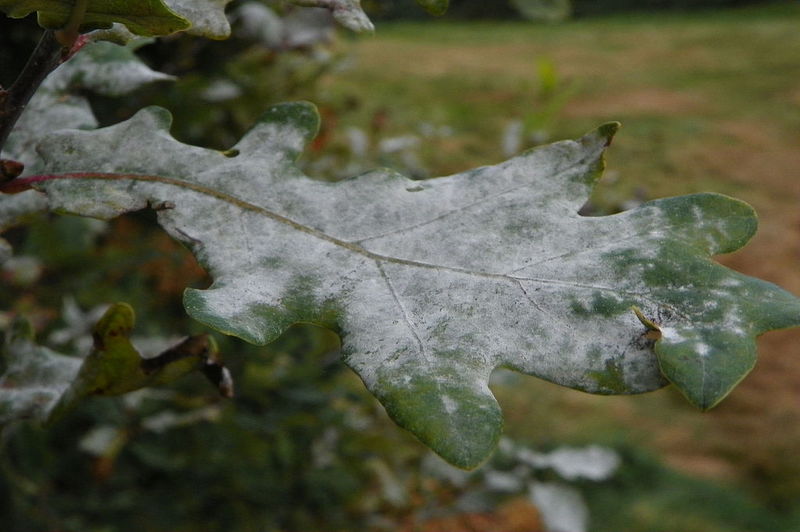


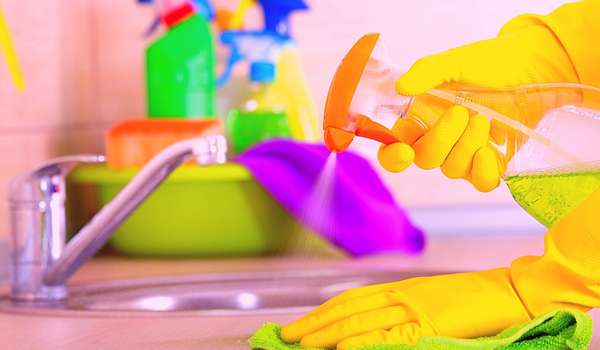

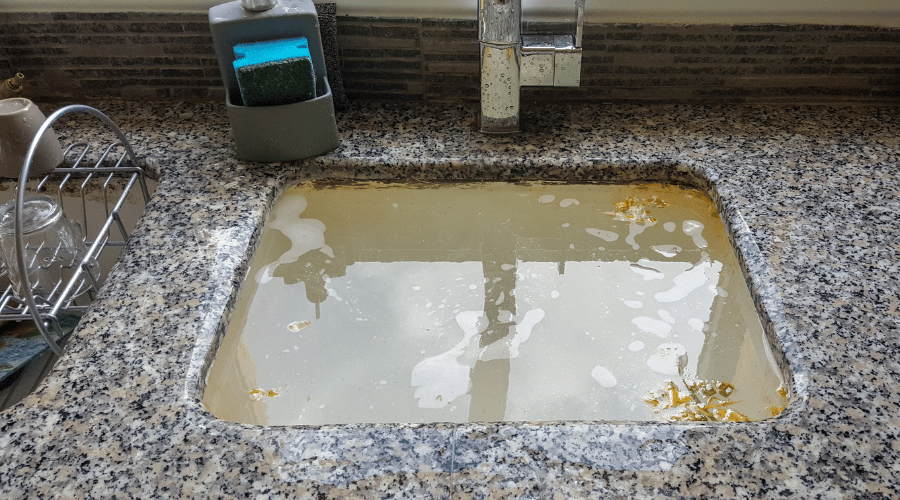








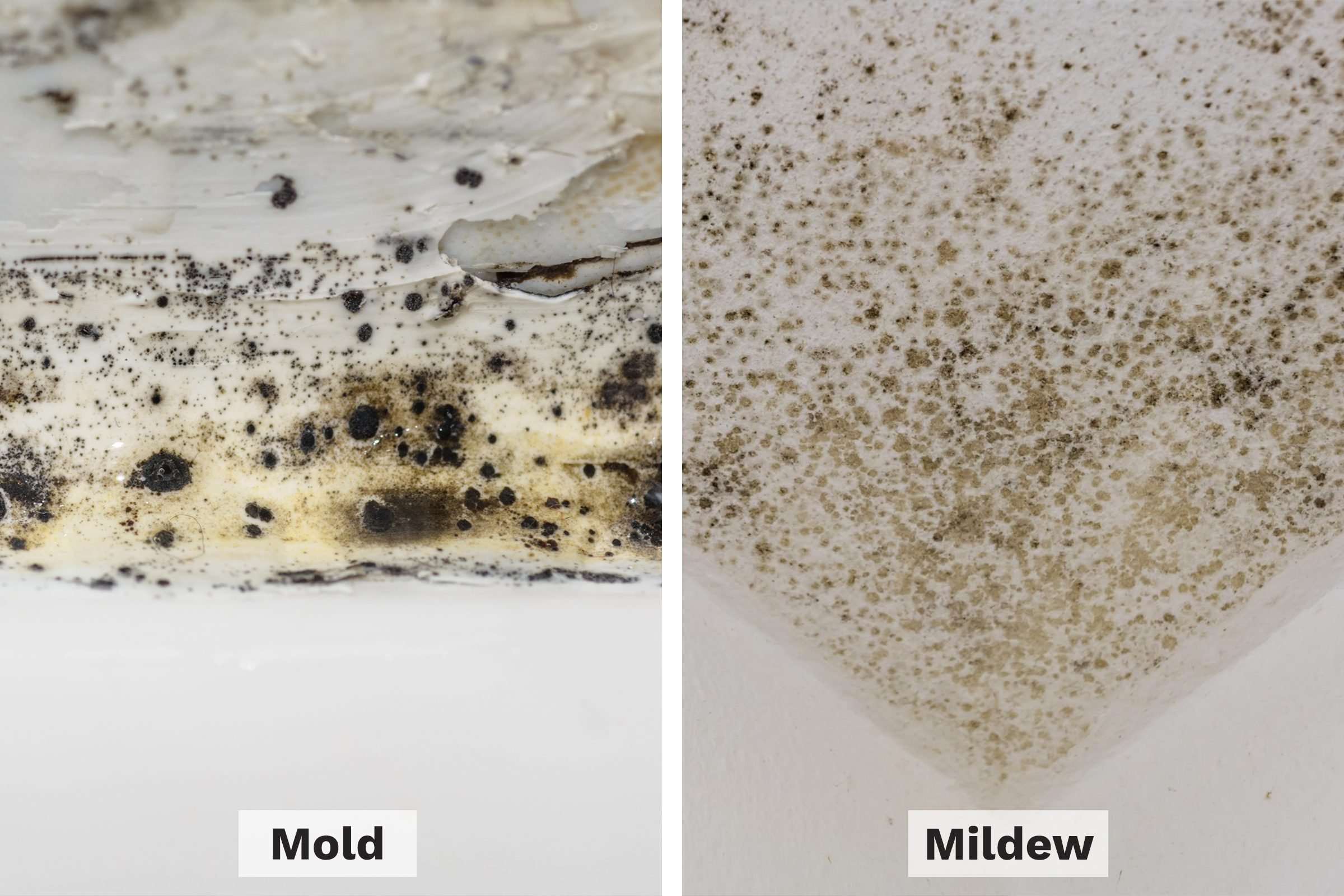





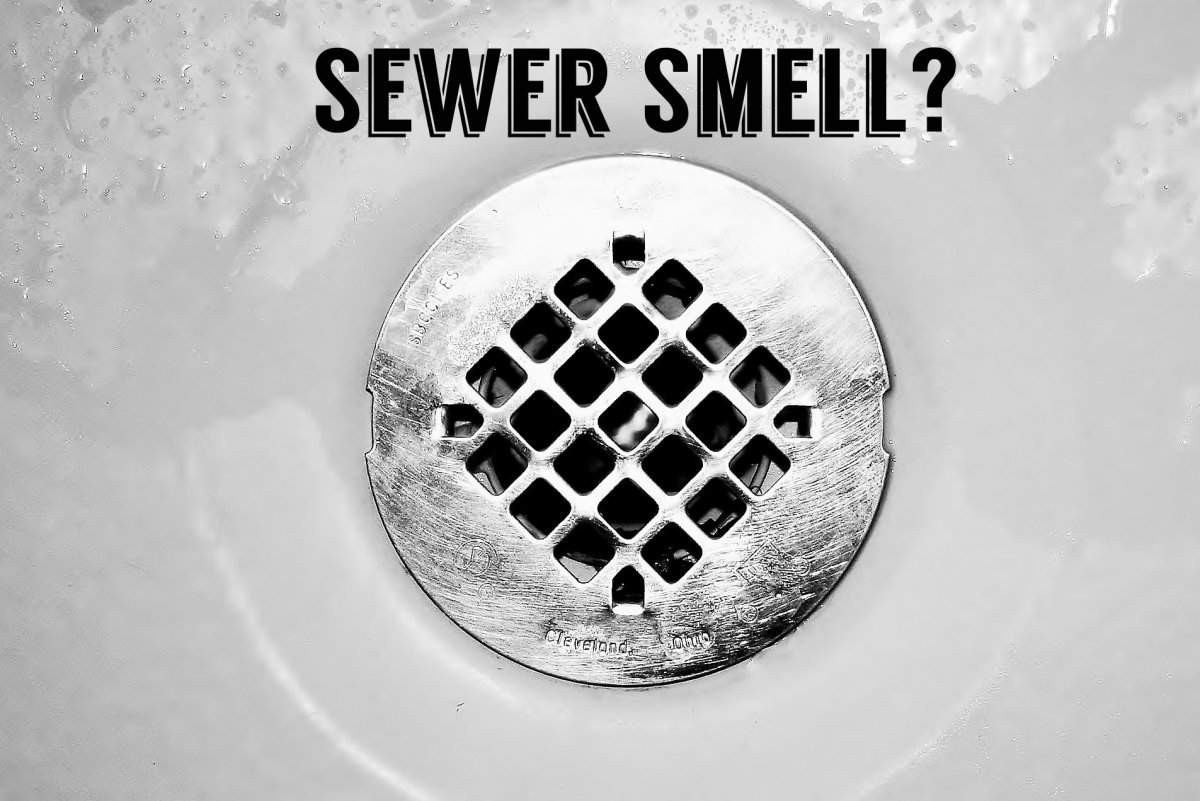









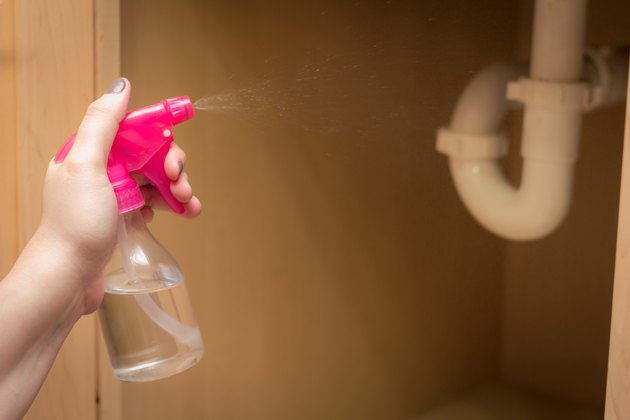



.png)


